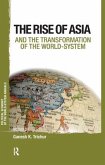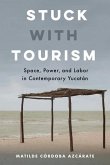"This is a brilliant and timely book that brings together careful ethnography with ethical philosophy. In the context of land reform in Bolivia, Mareike Winchell shows how a rights discourse has been put into place to represent the claims of indigenous peoples who have lost ownership of land and water rights as well public access. As much as these legal projects seek to recognize and repair very serious forms of dispossession, they nevertheless tend to misdescribe the injury through the language of property rights. Winchell seeks to bring to the fore the practices of ethical relationality that existed prior to the illegal seizure of lands and that continue throughout contemporary practices of resistance. This book presents a strong challenge to received epistemological frameworks with a kind of engaged writing whose conceptual reach, compassion, and precision are brilliant and necessary."--Judith Butler, Maxine Elliot Professor in the Department of Comparative Literature and the Program of Critical Theory, University of California, Berkeley "The conflictive histories of the hacienda era are not even past--descendants of tenant farmers today confront both the sequelae of servitude and the enduring presence of inequality. Winchell's careful, clear-eyed attention to the layered significance of post-colonial property leads to unexpected revelations about kinship and race, land and labor, justice and accountability."--Jessaca B. Leinaweaver, author of The Circulation of Children: Kinship, Adoption, and Morality in Andean Peru "After Servitude offers what the best ethnography provides: a richly contextualized case study of global phenomena. It rewards with careful reevaluations of property rights, political reform, and indigenous/colonial relations, revealing the surprising ways in which they interweave in the living histories of contemporary Bolivia. An exemplary piece of scholarship."--Justin Richland, author of Cooperation without Submission: Indigenous Jurisdictions in Native Nation-US Engagements "In this rich ethnography, Winchell compellingly argues that relational legacies of servitude deeply impact the search for indigenous justice. Even in Bolivia, where decolonization is a central goal of the state, liberal tools like rights and property are insufficient to untangle enduring patterns of kinship, mutual dependencies, land ownership, and authority."--Nancy Postero, author of The Indigenous State: Race, Politics, and Performance in Plurinational Bolivia
Hinweis: Dieser Artikel kann nur an eine deutsche Lieferadresse ausgeliefert werden.
Hinweis: Dieser Artikel kann nur an eine deutsche Lieferadresse ausgeliefert werden.








